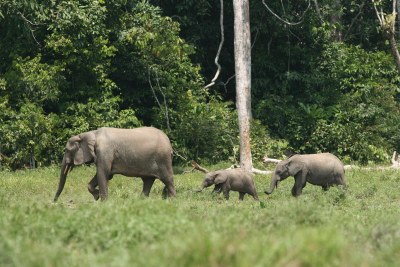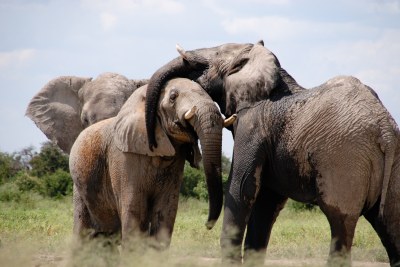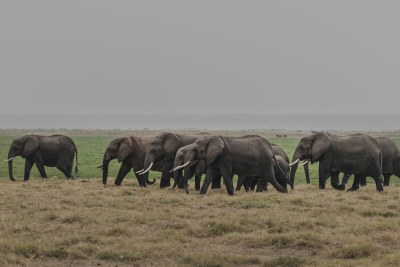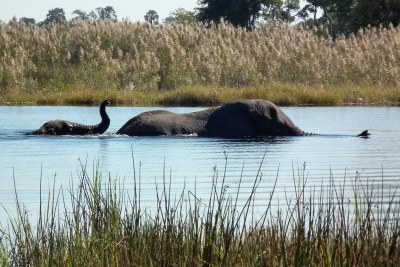-
Gabon: How Forest Elephants Move Depends On Water, Humans - And Their Personality
The Conversation Africa, 23 June 2021
African forest elephants roam the dense rainforests of West and Central Africa where they subsist largely on a diet of fruit. They shape forests by dispersing fruit and seeds,… Read more »
-
Gabon: Fruit Famine Is Causing Elephants to Go Hungry in Gabon
The Conversation Africa, 8 February 2021
The behaviour and life cycles of the largest animals on the planet are incredibly important for the healthy functioning of our planet's life support systems. Unfortunately, many… Read more »
There's Lots More to Know About African Elephants Than You Think
As the largest land animals alive, you'd probably expect elephants to eat a lot. And you'd be right, the number of calories one elephant can eat in a day could sustain a person for months.
The amount of food they eat depends on various factors, like their environment, food availability, and other biological needs. In hot areas, an elephant drinks more water than an elephant living in a reasonably average temperate region. In some places, elephants have to struggle in search of water. In those cases, they drink a huge amount of water to compensate for the loss of hydration.
However, because it's difficult to track animals in thick forest, little is known about the movements of the African forest elephant. This is troubling as poaching of forest elephants for their ivory as well as habitat fragmentation have decimated their populations over the past two decades from 700,000 to fewer than 150,000. On top of this, climate change might be reducing the availability of fruit in the forest, potentially leading to elephant famine.
Gabon holds 50% of Africa's remaining forest elephants. In 2017, the Gabon Parks Agency initiated an elephant GPS collaring programme to improve the understanding of forest elephant movements and guide their management and more.
InFocus
-
The Masai Mara ecosystem, in south-western Kenya, is home to an important elephant population of about 2,500 individuals. Elephants need large amounts of space to roam in search of ... Read more »
-
Zimbabwe is considering mass killing of elephants for the first time since 1988 in a bid to reduce the 100,000 strong population of the animals and protect the environment. The ... Read more »
-
For several months now, environmentalists have been battling with an investor, KiliAvo Fresh Ltd, who purchased and cleared 180 acres of land in the heart of Amboseli, hoping to ... Read more »
-
Authorities in Botswana say the elephant hunting season will go ahead as planned, despite a world conservation body listing African elephants as endangered, Voice of America repo Read more »
-
An international multi-institutional study initiated by the University of Cape Town (UCT) involving the scientific and historical analysis of elephant tusks found in the ... Read more »








